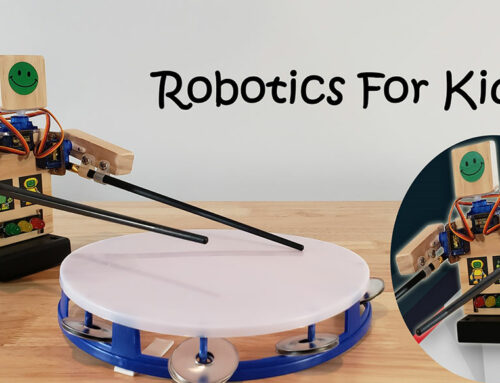Contributors: Peggy Ployhar and Donna Schillinger
THSC is committed to the homeschooling success of families with special needs. That’s why we have developed a number of special education support resources especially for your family!
Additionally, there are many resources available through national organizations to aid in your parenting and homeschool journey. Finally, if one of these groups or services does not have what you’re looking for, there’s probably an app for that.
Read ahead:
8 Resources THSC Offers to Families Homeschooling a Special Needs Student
- Special Needs Nook Blog. Stay informed every month with a new blog post addressing current special needs homeschooling issues. Simply sign up for email notifications.
- “How Do I Start?” for Special Needs Families. For parents in the initial stages of homeschooling a special needs child, our website highlights the tools and consulting services THSC offers.
- Special Needs Curriculum Information. A newly revised list of “special needs parent-approved” homeschooling resources—a free PDF download.
- Special Needs Coaching. THSC’s Special Needs department provides one-on-one consulting services to special needs parents who need advice on how to advocate for your children, choose a curriculum, or develop an IEP to document your child’s goals and need for accommodations or modifications to curriculum. Log into your member portal. Choose Access your member benefits by clicking here; then request a consult under Expert Coaches.
- Helpful Hints. Recently added is a new, easy-to-access list of frequently asked questions under Special Needs on the THSC website, answering the most common special needs homeschooling questions.
- Special Needs Glossary. Special needs parents quickly find they have a whole new language to learn! With special needs educational lingo being such a critical part of advocating for your special needs child, THSC also recently added an entire webpage dedicated to defining special needs terminology.
- THSC Members get free use of a first-of-its-kind IEP Generator. Useful for many aspects of coordinating care and schooling, just complete the online form and our IEP Generator formulates your answers into a professional-looking and valid individualized education plan. Learn more about the IEP Generator.
- Special Care at THSC Conventions. The Special Buddies program, which is THSC’s special needs Convention program, offers unique help to parents attending the annual THSC Convention. Also, Buddy Helpers allows children that struggle with less severe disabilities to join our Kids Convention program.
What are we missing? If you have any ideas to share with us on how you would like THSC to further help in your special needs homeschooling endeavors, or how you would like to partner with THSC to help special needs homeschooling families in Texas, please contact us at specialneeds@thsc.org.
7 National Organizations Supporting Families with Special Needs
Nationwide, there are many special needs organizations that work with children with special needs.
These programs go all the way through adulthood, providing them with extra help in education, advocacy, advice, etc., to flourish and become integrated members of society. Other programs focus their support on the family or parents of persons with special needs.
- Parent to Parent USA matches families who have children with similar disabilities for friendship and emotional support.
- National Collaborative on Workforce and Disability for Youth helps teens with disabilities find their place in the workforce, including receiving academic preparation or training so they can live more independently.
- The M.O.R.G.A.N. Project (Making Opportunities Reality Granting Assistance Nationwide) assists families with expenses for travel for medical treatment and equipment that insurance won’t pay for. There is also a support group component to this project.
- Federation for Children with Special Needs provides support and assistance to families as they seek to integrate fully into community life. The Federation supports parents of special needs children in influencing public policy. A peer support network connects families in similar circumstances.
- Center for Parent Information and Resources is a clearinghouse of research-based information on effective practices for children with disabilities as well as childhood diseases and disabilities.
- Family Voices provides families with the “tools to make informed decisions” about health care and education. They train families to advocate for policy changes as well as empowering young adults with disabilities to self-advocate.
- Disabled Sports USA is for anyone with a permanent disability who wants to play sports, as well as using sports-based rehabilitation. Disabled Sports USA, in conjunction with the United States Olympic Committee, select athletes to compete in the Paralympics.
- The Arc is for people with intellectual and developmental disabilities. Find a local chapter near you to find out what services they offer, including vocational programs, case management and recreational programs.
- Special Olympics offers year-round sports training and athletic competition in a variety of Olympic-type sports for children and adults with intellectual disabilities. This provides them with continuing opportunities to develop physical fitness, demonstrate courage, experience joy and participate in the sharing of gifts, skills and friendship with their families, other Special Olympics athletes, and the community.
Special Education and Disability Law and State Offices
Fortunately, our nation has a comprehensive consideration of physical and developmental disabilities in its laws and government. Here are some of the federal laws special needs families are most likely to encounter.
- Section 504 of the Rehabilitation Act of 1973 protects the rights of individuals with disabilities in programs and activities that receive federal financial assistance, including federal funds.Section 504 provides that: “No otherwise qualified individual with a disability in the United States … shall, solely by reason of her or his disability, be excluded from the participation in, be denied the benefits of, or be subjected to discrimination under any program or activity receiving Federal financial assistance.”
- IDEA (Individuals with Disabilities Education Act) of 2004 governs how states and public agencies provide early intervention, special education, and related services to more than 6.5 million eligible infants, toddlers, children and youth with disabilities. (Understand the Differences Between Section 504 and IDEA.)
- ADA (American Disabilities Act) of 1990 “ADA…makes it illegal to discriminate against people with disabilities at work, in school and in public spaces.” Read this to discover how it applies to your child with special needs.
- DARS (Texas Department of Assistive & Rehabilitative Services). As of September 1, 2016, programs and services previously administered or delivered by the former Texas Department of Assistive and Rehabilitative Services (DARS) have been transferred by the Texas Legislature to the Texas Workforce Commission or the Texas Health and Human Services Commission. (See how the former DARS services were divided between the two agencies.)
- ESSA (Every Student Succeeds Act) reauthorized the Elementary and Secondary Education Act of 1965 (ESEA) and replaced the No Child Left Behind Act. (Read this analysis of how ESSA intersects with disabilities issues.)
- Guide to Disability Rights Law covers all of the above, plus applicable laws from Telecommunications Act, Fair Housing Act, Air Carrier Access Act, Voting Accessibility for the Elderly and Handicapped Act, National Voter Registration Act, Civil Rights of Institutionalized Persons Act, and Architectural Barriers Act
Free or Low-Cost Therapy Options for Special Needs Children
- ABA (Applied Behavior Analysis) Therapy:
- Assistive Technology:
- Occupational Therapy (OT):
- Speech Therapy:
- Visual & Auditory Processing Therapy:
Apps for Special Needs Support
Therapy Tools
- 16 Speech Therapy Apps
- Pediatric Therapy Apps to Get Kids Moving
- 20 Occupational Therapy Apps
- ABA Flash Cards and Games App
Diagnostic Specific
- 10 ADHD Friendly Brain Training Apps
- 3 Apps for Blind and Visually Impaired
- Best Dyslexia Apps for Middle and High School
- Sounding Board App for Non-verbal Communication
- Matrix Game Visual Perception Apps
- SnapType App for Dysgraphia
- Best Apps for Down Syndrome
- Apps for Sensory Processing Disorder
- iHelp for Autism
Organizational Tools
- 10 Apps for Teaching Life Skills
- 4 Free Apps to Increase Attention and Time Management
Bonus Resources: Editor’s Top 5 Magazines and Websites Picks for Families with Special Needs Students
- Exceptional Parent Magazine.
- Audacity Magazine.
- Interactive Planner for Special Needs Caregivers.
- 50 Great Websites for Parents of Children with Special Needs.
- Possibilities (a publication on financial management for families of special needs children).
***
Donna Schillinger homeschooled her two children for 11 years. She is president of the Micah 6:8 Initiative in Rogers, Ark., which addresses food and housing insecurity in Northwest Arkansas.
Peggy Ployhar, TTHSC Lead Writer and SPED Homeschool Founder & CEO
Peggy Ployhar, SPED Homeschool Founder & CEO, is a leader in the special education homeschooling community and a frequent writer and speaker on special education homeschooling issues. Peggy’s journey into homeschooling started 18 years ago when her oldest child was diagnosed with Asperger Syndrome.
Peggy is the former THSC (Texas Home School Coalition) Special Needs Team Lead, MACHE (Minnesota Association of Christian Home Educators) Special Needs Coordinator and MOPS (Mothers of Preschoolers) Area Coordinator for MN, ND and SD. She is certified by the American Association of Christian Counselors and trained as a Precept Bible Study leader.
In her free time Peggy enjoys aerial silks, paddle boarding, cooking, hiking and reading.
You can tune in every Tuesday evening on the SPED Homeschool Facebook page to watch Peggy host SPED Homeschool Conversations, a weekly talk show about special education homeschooling or you can join her daily on her personal YouTube channel, Daily Revelations.




